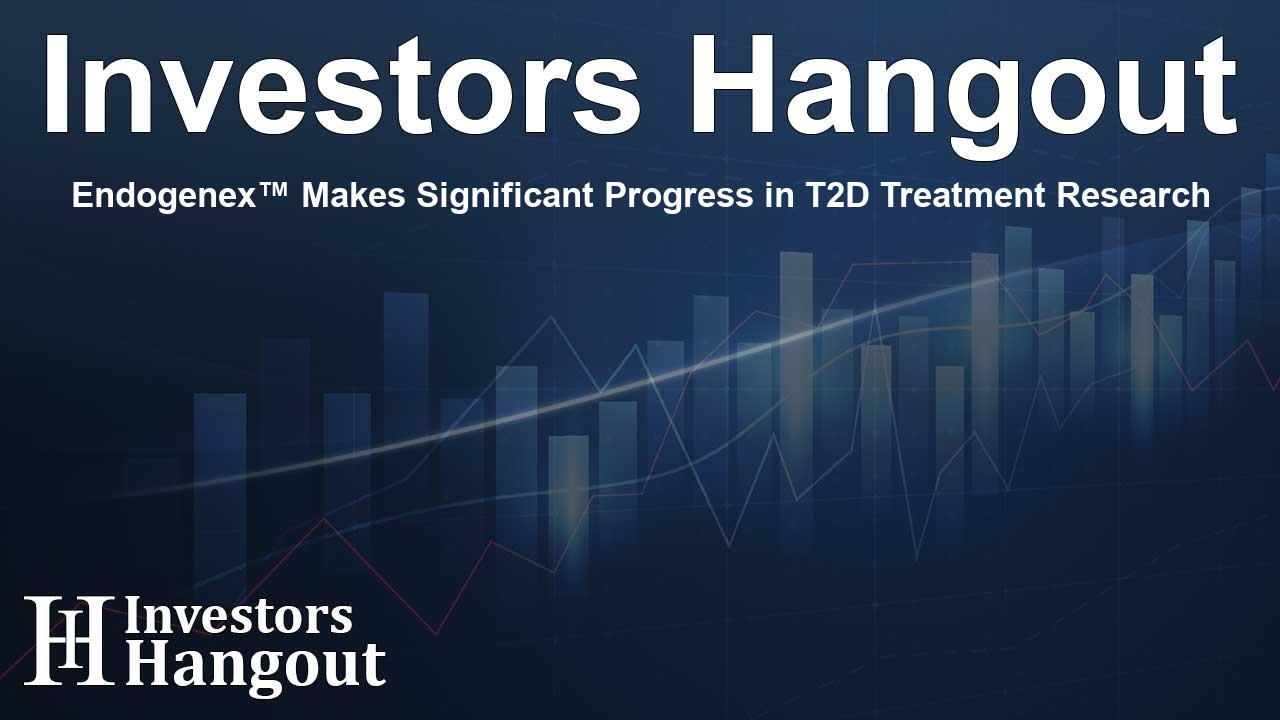Endogenex™ Makes Significant Progress in T2D Treatment Research

Endogenex™ Reaches a Clinical Milestone in Diabetes
Endogenex, Inc., a clinical-stage medical device company, has announced the successful enrollment of the first patient in the ReCET Clinical Study. This groundbreaking study aims to investigate the ReCET™ System as a potential treatment for Type 2 Diabetes (T2D), a condition that affects millions worldwide.
Understanding the ReCET Clinical Study
The ReCET Clinical Study is a multicenter, prospective, randomized, double-blinded, sham-controlled trial. Its primary aim is to evaluate the safety and effectiveness of the ReCET™ System in adults who have not achieved adequate control of their T2D with current non-insulin glucose-lowering therapies. This study represents a critical step forward in transforming T2D treatment through innovative medical technology.
CEO's Vision for T2D Treatment
Stacey Pugh, the CEO of Endogenex, expressed enthusiasm about reaching this milestone, emphasizing the company’s commitment to tackling the underlying causes of T2D. As she stated, achieving this enrollment is part of a larger mission to redefine treatment protocols for a condition that continues to grow in prevalence globally.
First Patient Enrollment Highlights
Clinical enrollment took place at Orlando Health, under the guidance of Dr. Andre Teixeira. His leadership, as Medical Director of the Orlando Health Weight Loss and Bariatric Surgery Institute, has paved the path for a promising research endeavor. Dr. Teixeira noted that the study reflects evolving clinical evidence about the duodenum's role in glucose metabolism. This cutting-edge intervention has the potential to significantly improve health outcomes for patients managing T2D.
Expert Insights on ReCET Technology
Dr. Richard Pratley, Medical Director at Advent Health Diabetes Institute, shared his optimism as Co-Principal Investigator of the study. He conveyed that the ReCET study could provide fresh avenues for diabetes management, offering hope to patients who struggle with existing treatments. The innovative approach taken in this study showcases the dedication to improving patient care environments surrounding T2D.
What is the ReCET™ Procedure?
The ReCET procedure is a novel outpatient endoscopic technique designed to address specific cellular pathologies in the duodenum that may contribute to T2D. By utilizing pulsed electric fields, this method aims to enhance the way the body regulates blood glucose levels, presenting an exciting breakthrough in diabetes therapy.
Background and Trials of the ReCET System
This innovative system has undergone feasibility testing in various studies, including those conducted in the United States, Australia, and Europe. Results from these studies will help justify further clinical investigations and provide valuable insights on patient responses to this new technique.
About Endogenex and Its Commitment
Endogenex was founded with the vision of pioneering revolutionary treatment solutions for individuals battling T2D. Their efforts focus on leveraging the body’s innate healing capacities to support metabolic function and improve blood glucose management. This new approach, combined with substantial clinical research, means that Endogenex is effectively establishing a new standard in T2D care.
Ongoing Commitment to Research and Development
By enhancing understanding of elements leading to successful diabetes management, Endogenex is committed to bringing new therapeutic options to the forefront. Their continuous investment in advancing technology reveals their dedication to tackling this urgent health issue head-on.
Frequently Asked Questions
What is the ReCET Clinical Study about?
The ReCET Clinical Study aims to evaluate the effectiveness and safety of the ReCET™ System for treating patients with Type 2 Diabetes who have not seen sufficient results from current medications.
Who is involved in the ReCET Study?
Clinical researchers from multiple medical centers are engaged in the study, with leadership from specialists like Dr. Andre Teixeira and Dr. Richard Pratley, ensuring high-level oversight and expertise.
How does the ReCET procedure work?
The ReCET procedure involves the application of controlled, non-thermal pulsed electric fields to the duodenum, which may help improve metabolic functions and blood glucose regulation.
What are the expected outcomes of the ReCET Study?
Expected outcomes include improved metabolic function and better management of blood glucose levels in patients with Type 2 Diabetes.
Is Endogenex involved in other studies?
Yes, Endogenex has conducted previous studies, such as REGENT-1 and EMINENT, to evaluate the ReCET System's impact on T2D management.
About Investors Hangout
Investors Hangout is a leading online stock forum for financial discussion and learning, offering a wide range of free tools and resources. It draws in traders of all levels, who exchange market knowledge, investigate trading tactics, and keep an eye on industry developments in real time. Featuring financial articles, stock message boards, quotes, charts, company profiles, and live news updates. Through cooperative learning and a wealth of informational resources, it helps users from novices creating their first portfolios to experts honing their techniques. Join Investors Hangout today: https://investorshangout.com/
Disclaimer: The content of this article is solely for general informational purposes only; it does not represent legal, financial, or investment advice. Investors Hangout does not offer financial advice; the author is not a licensed financial advisor. Consult a qualified advisor before making any financial or investment decisions based on this article. The author's interpretation of publicly available data shapes the opinions presented here; as a result, they should not be taken as advice to purchase, sell, or hold any securities mentioned or any other investments. The author does not guarantee the accuracy, completeness, or timeliness of any material, providing it "as is." Information and market conditions may change; past performance is not indicative of future outcomes. If any of the material offered here is inaccurate, please contact us for corrections.